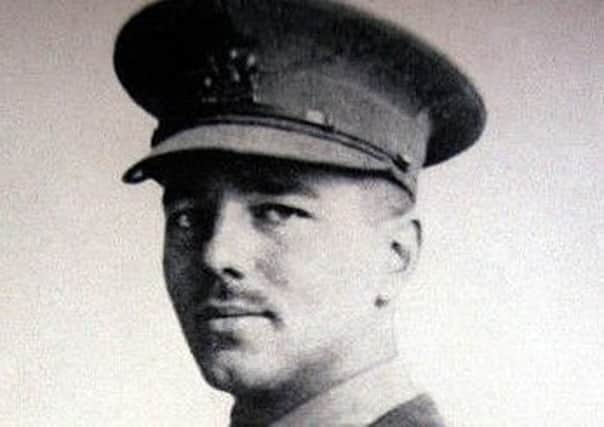The War Poets: How poetry has shaped our view of the Great War


LEGEND has it that John McCrae discarded what became In Flanders Fields because he didn’t believe it was good enough.
If it hadn’t been retrieved by some of his fellow soldiers then not only would the poem have been lost, but the idea of the poppy as an international symbol of commemoration might never have been born.
Advertisement
Hide AdAdvertisement
Hide AdFor it was McCrae’s now famous poem, first published in Punch magazine a century ago, that sowed the seeds of the association of poppies – that blow “Between the crosses, row on row” – with the war itself in people’s imagination.
McCrae, a Canadian army doctor, wrote the poem in 1915 following the death of a young soldier in his artillery unit during the Second Battle of Ypres. And today it is one of numerous poems written by the likes of Wilfred Owen, Siegfried Sassoon and Rupert Brooke, that have become synonymous with what Ted Hughes called that “huge, senseless war”.
For many people the First World War conjures pictures of weary soldiers “knock-kneed, coughing like hags” as they wade through “the sludge” of the trenches.
These vivid images, taken from the poem Dulce et Decorum Est, were written by Wilfred Owen, a junior officer in the trenches of northern France, and most of the great poems of the war were written by those who experienced its horrors first-hand.
Advertisement
Hide AdAdvertisement
Hide AdThe powerful words that course through the veins of such poems such as Lights Out, by Edward Thomas, and Owen’s Anthem to Doomed Youth have left a potent legacy.
Our perception of the Great War is arguably shaped by poetry and language more than any other conflict in modern history.
The Second World War produced some great poems by the likes of WH Auden, Randall Jarrell and Keith Douglas, but when we talk about the war poets and war poetry we don’t think of that conflict or Vietnam, the Falkland Islands, or Afghanistan, even though powerful poems have been written about each.
Instead, we think of the Great War. One of the reasons for this is the fact that the work of Owen and Brooke et al has been taught in British schools for well over 50 years now and in doing so has influenced successive generations of pupils.
Advertisement
Hide AdAdvertisement
Hide AdNot only that but the First World War was arguably the last major conflict where literature, poetry and, to a lesser extent, photography told the emotional story of the war.
By the time the Nazis began their assault on Europe, television was taking over as the chief form of mass communication – a role it has maintained ever since.
But Professor John Whale, Head of the School of English at the University of Leeds, says what characterises the poetry that sprang out of the Great War is its richness and variety.
“In Flanders Fields might not be a great poem but it played a key part in the narrative of the time, not least because it gave rise to our now widespread use of the poppy as a way of imaging not just the First World War, but all wars,” he says.
Advertisement
Hide AdAdvertisement
Hide Ad“This particular poem captured the nationalist sentiment of the time and was very much in line with the war effort. Its images of restless ghosts almost saying ‘we will haunt you if you don’t do the right thing’ served to galvanise recruitment.”
Together, the First World War poets had a profound impact. “They changed the face of poetry,” says Prof Whale. “Isaac Rosenberg – still an under-rated war poet – has a poem, Break of Day in the Trenches, which offers an alternative, ground-breaking image of the poppy to that found in In Flanders Fields.”
People like Rosenberg not only changed poetry, they also changed the way we look at warfare.